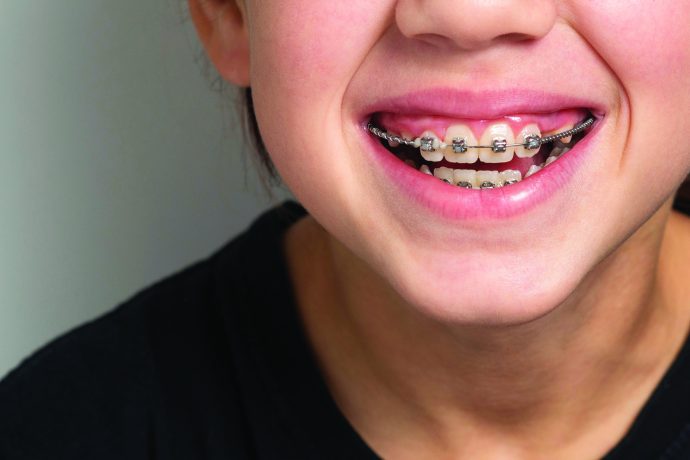Did you have to wear dental braces during your childhood? What about your child? Do you think they need braces too? Let’s learn more about dental braces!
What are dental braces?
Dental braces are devices that are fitted inside the mouth to apply mild, steady pressure on the teeth. Over time, this slowly moves them into a straighter and proper position. Braces are used to correct various orthodontic issues (e.g. misaligned teeth).
Braces are often installed by orthodontists (dentists specialised in preventing and correcting jaw and teeth alignment problems), but general dentists may offer the service too. Usually, braces are worn by children and teens, but adults can use them too. There are different types of braces available:
- Metal braces
- Ceramic braces
- Self-ligating braces
- Lingual braces (worn on the back side of teeth)
- Clear aligners (an alternative to braces)
Why do children need braces?
Children may need braces for many reasons, typically involving orthodontic issues like:
- Crooked teeth
- Overlapping teeth
- Overcrowding teeth
- Gapped teeth
- Missing teeth
- Extra teeth
- Bite problems (problems with the way teeth fit together, e.g. overbite, underbite)
- Misaligned or incorrect jaw position
- A disorder of the jaw joint
When and how long should my child wear braces?
The ideal timing is when the permanent dentition is established at the age of 12-14 years old. However certain problems can be detected as early as 7-8 years old, so bringing your child to see your dentist early is advisable. At these ages, jaws and facial bones are still developing, thus they are more flexible. Adults can also get braces but it may take a longer time to achieve the result. The duration depends on the severity of the misalignment, but typically, it takes about two years to complete the braces treatment.
What are the benefits and side effects of wearing braces?
Benefits
- Enhance the appearance of teeth, i.e. a straighter, more beautiful smile
- Make it easier to clean teeth
- Correct jaw joint disorders
- Improve proper functions like chewing and speaking
Side effects
- Mild discomfort (usually on the first day and after tightening the braces)
- Trouble eating (especially after a tightening)
- Irritation on the tongue, lips or inner cheeks
- Jaw pain
Plaque can build up around brackets and wires of braces, leading to dental problems. Thus, good oral hygiene is key for those wearing braces. Teach your child to brush their teeth after every meal and to floss daily. Bring your child regularly to dental cleanings and check-ups to detect cavities. They should also avoid hard, crunchy or sticky foods. If they are feeling uncomfortable, give them over-the-counter pain relievers and feed them soft foods.





